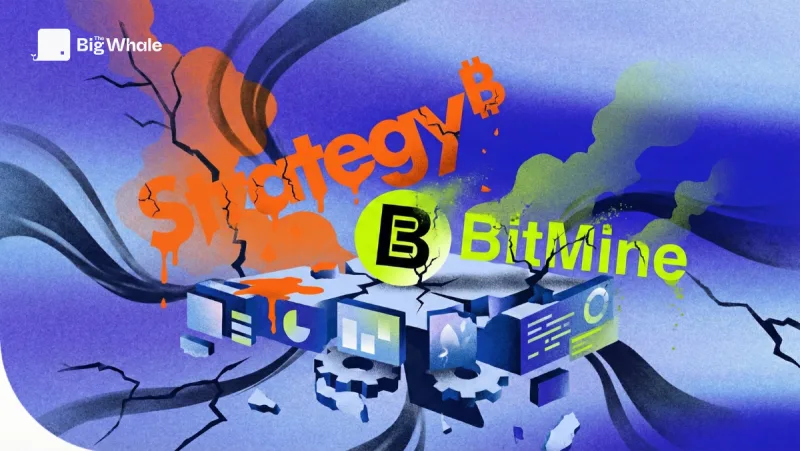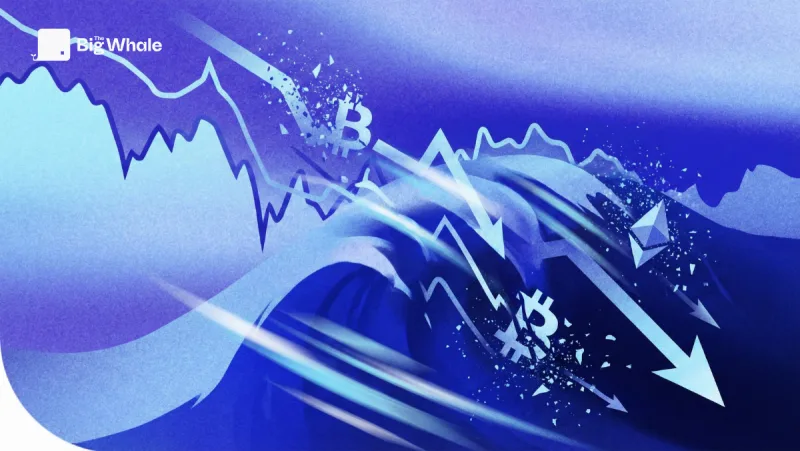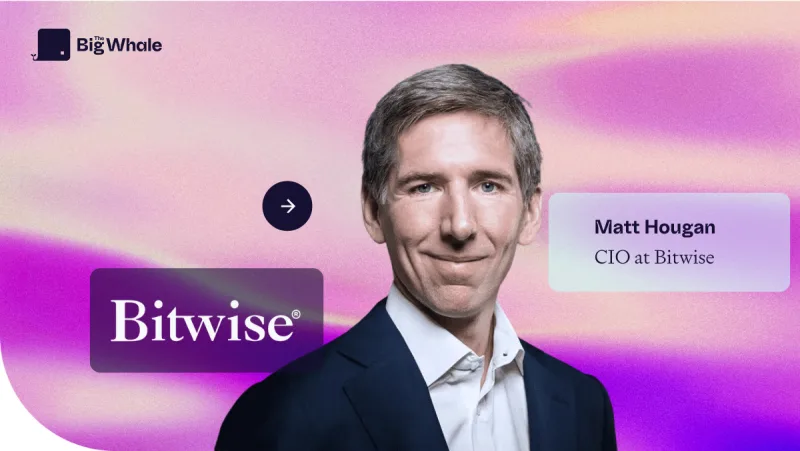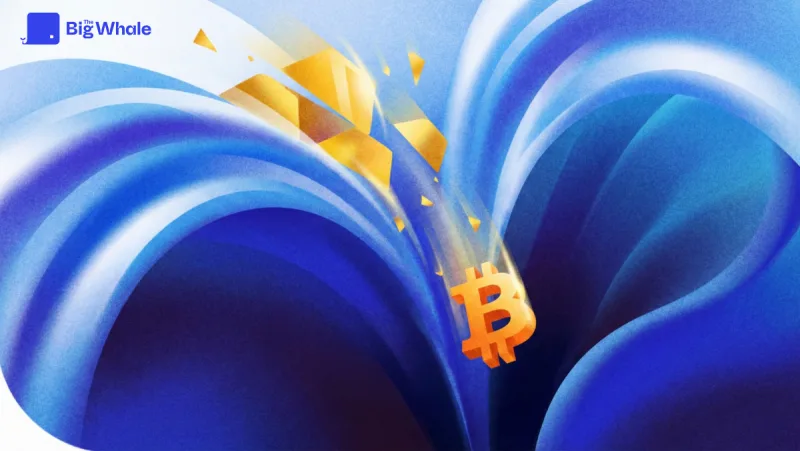TBW - Mike Reed (Franklin Templeton): "Our money market fund serves as a crypto savings account"
"Our tokenised money fund is like a crypto savings account"
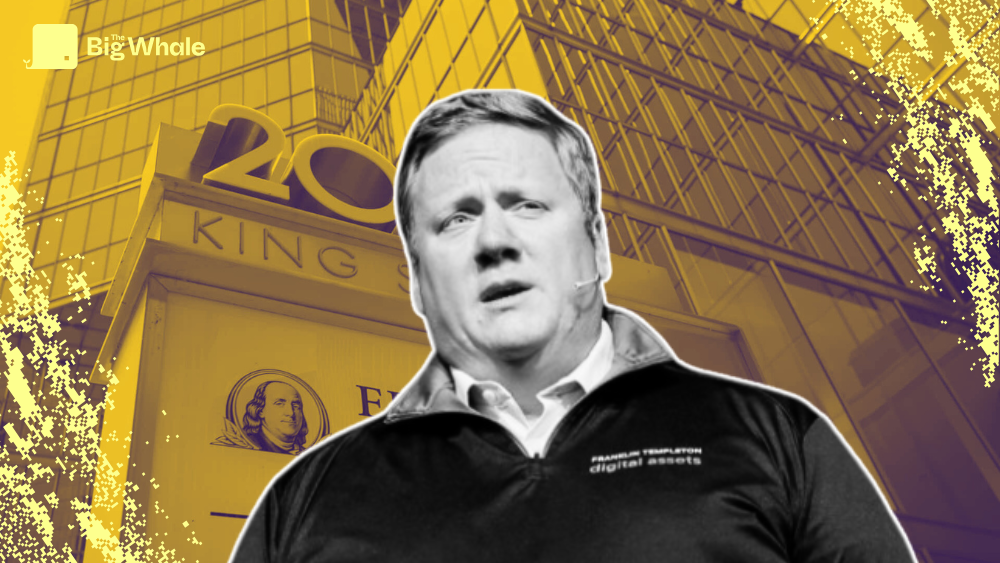
The Big Whale: Franklin Templeton stands out as a digital assets pioneer in the United States. What drove this and what's your strategy?
Mike Reed: Our journey began a decade ago when Roger Bayston, now our digital assets leader, introduced us to Bitcoin. We were focused on bond markets then.
It started with his son earning Bitcoin by helping players in Call of Duty. Bitcoin was worth just $100, but it caught our attention.
Ethereum's 2015 launch was our watershed moment, especially as fixed income specialists: "programmable money" and "smart contracts" resonated immediately with our vision.
Was digital asset integration clear from the beginning?
Definitely. We embraced a global vision from day one. While our initial product targeted U.S. investors, we always planned broader expansion. Our European money market fund launch six weeks ago exemplifies this strategy.
Franklin Templeton is a household name. What sets you apart in digital assets?
While products standardize, the market remains vast. Consider this: traditional stock markets exceed $100 trillion, while digital assets represent just $2.5 trillion. This gap signals tremendous growth potential with room for multiple players.
Our distinction lies in authenticity. We've deeply embedded ourselves in the crypto ecosystem, from conferences to direct engagement with projects, protocols, and teams.
For multi-crypto portfolios, we implement rigorous fundamental analysis, studying tokenomics and developing sophisticated price and volatility models.
We also maintain our own validator nodes. From the outset, we prioritized having direct blockchain ledger access. Today, we run 30 nodes across over 10 blockchains, including Stellar, Polygon, Aptos, Avalanche, Arbitrum, Ethereum, Base, Solana, and others.
So you're fully integrated into the crypto ecosystem, beyond mere distribution...
Precisely. We strive to understand the sector from within. Conferences expose us to everything from experimental projects to foundational infrastructure, including payment solutions.
Our mission is identifying genuine value in this dynamic space.
How do you view the current market? Bitcoin shows resilience amid trade war tensions, while other cryptos appear vulnerable. Your thoughts?
Bitcoin remains our cornerstone. The fascinating aspect is the wide-open potential for other tokens and cryptocurrencies.
How does Franklin Templeton approach Europe compared to the United States? Do your products differ?
Our European launch mirrors our U.S. strategy, offering a tokenized money market fund with a stable $1 net asset value.
It transcends traditional investment products to become a versatile financial tool. We aim to provide European investors comparable opportunities to Americans, naturally adapted to local regulations.
What about your volume metrics?
Our global tokenized money market fund almost surpasses $700 million. European figures are pending due to recent launch, but we maintain ambitious targets.
Who are your typical clients in both markets? Primarily institutions?
Indeed. Our U.S. clientele spans various sizes and sectors, including crypto players seeking stability during market volatility. We're actively expanding in Europe.
How do you see Franklin Templeton's role evolving? You're a traditional finance leader increasingly engaged in DeFi and crypto.
It's multifaceted. Our trusted brand and capital management expertise form our foundation. Yet we've evolved, embracing young talent's perspectives on financial innovation, particularly in crypto and blockchain. Their insights directly shape our strategy.
How should investors choose between money market funds? What distinguishes yours from BlackRock's and others? Is it relationships? Returns?
Traditional markets commoditize these products, like ETFs competing on fees. In crypto, functionality creates meaningful differentiation.
Our asset's native blockchain architecture eliminates intermediaries and parallel ledgers. Unlike competitors synchronizing off-chain ledgers, our approach enables broader possibilities.
Could you elaborate?
Native blockchain integration enables instant asset settlement upon wallet arrival, without reconciliation delays.
This efficiency is crucial for investors. Plus, direct legal relationships with the fund eliminate intermediary complications.
Are you targeting specific competitors? Perhaps BlackRock with Securitize?
That's your interpretation.
So blockchain technology's true value lies in your product architecture?
Absolutely. It's essential for maximizing the technology's potential.
Regarding potential, Ripple and BCG project $19 trillion in tokenized assets by 2033. Realistic?
Tokenization transforms how we capture asset value. Consider a seasonal sports subscription: once tokenized, it provides access to exclusive experiences like field dinners or player meet-and-greets. If priorities change, you can monetize these benefits.
A $1,000 subscription could be partially lent for $200, effectively reducing costs to $800. This exemplifies how tokenization enables precise value fractioning, creating new economic opportunities.
Might Franklin Templeton launch a stablecoin, given your tokenized money market fund?
Let's be clear: our money market fund differs from stablecoins. A stablecoin involves providing funds against a stable-value asset, which the issuer invests independently. Our investors receive a stable asset while participating in generated returns.
So it's more stablecoin-plus-yield?
Similar, but with a crucial distinction: unlike stablecoins requiring KYC only at issuance and redemption, our asset demands continuous client verification. This enables natural coexistence between tokenized funds and stablecoins, each serving distinct purposes.
Think of our tokenized money market fund as a crypto savings account, while stablecoins function like checking accounts.
Would offering both make sense?
An intriguing question, but not currently planned.
After two challenging years for U.S. crypto projects, conditions seem improving, especially regulatory clarity. Has America regained leadership? Can Europe compete?
The French ecosystem's dynamism impresses me, with numerous entrepreneurs and promising projects.
U.S. progress is encouraging, but this is now a global market, with significant Asian developments. Excellence knows no borders.
